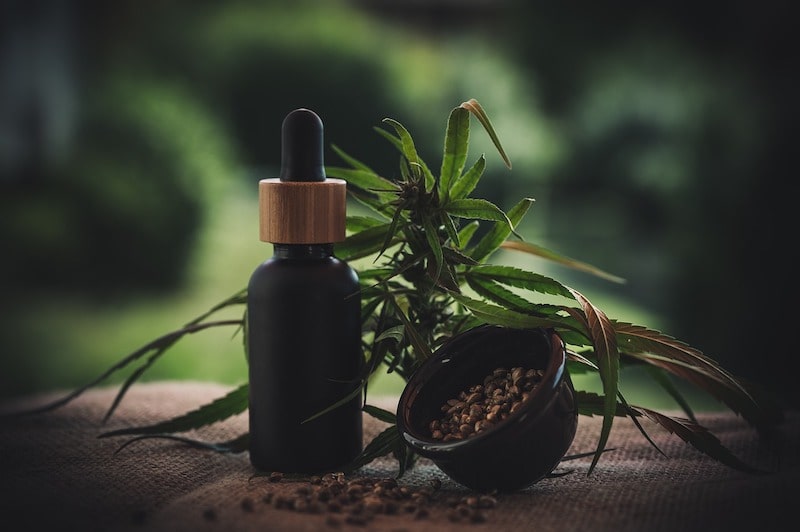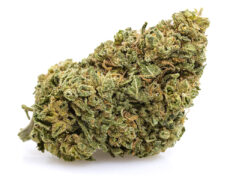Modified on: 20/12/2024
Are there contraindications about the use of CBD oil? Let’s discover it together
CBD oil is a product derived from cannabidiol, one of the main active principles of cannabis.
The CBD is currently at the center of attention of the scientific community since it is a substance that does not cause psychoactive effects (therefore completely different from THC) and from the innumerable and proven benefits.
Today we will talk about the use of CBD oil and its possible side effects. But it is necessary to begin first of all with an introduction concerning cannabidiol and its properties.
CBD: what you need to know
The CBD cannabis market is rapidly expanding, so thanks to various researches, more information on the substances it contains is being acquired.
Although THC is the best known active ingredient among cannabis users, more in-depth studies have recently been conducted on another Cannabis sativa metabolite: cannabidiol (CBD).
It is a substance that has no influence on the psyche, but has sedative effects and helps to relax. If THC and CBD work together, the effects are even more surprising since cannabidiol can soothe the exciting effects of tetrahydrocannabinol.
CBD also has numerous properties that can be used in the medical field. Being an effective antioxidant, anti-inflammatory, analgesic, anticonvulsant and antidepressant, it can be used (always under medical supervision) to calm the symptoms of:
- epilepsy
- schizophrenia
- depression
- Parkinson’s disease
Read also: Marijuana mincer: what it is, how it works and why it is useful


CBD based products
Nowadays, considering the many benefits of cannabidiol especially for therapeutic purposes, it is possible to buy it in various forms.
Liquid to be used for the electronic cigarette, CBD oil, ointments and crystals to be vaporized. It is also interesting the integration of CBD in food products or also the intake thanks to lotions and patches.
An interesting factor is that in most European countries it is a licit substance and therefore does not require any medical prescription.
These products, especially CBD Sensitiva oils, are simple to intake and to dose.
CBD oil: intaking methods and benefits
The intake of this metabolite extracted from hemp (100% natural) in the form of oil is certainly the most widespread.
Specifically, CBD oil is derived from the flowers of cannabis plants: which is why they are carefully selected to contain higher concentrations than THC.
This particular product can soothe pain caused by migraine and chronic diseases due to its analgesic power. It can also reduce symptoms caused by post-traumatic stress disorder or obsessive compulsive disorder.
But that’s not all: Cannabidiol oil is also useful in case of insomnia. It helps you to relax, calm anxiety and combine good rest.
Very interesting is also its application for aesthetic treatments: it is an effective anti-acne and counteracts the signs of skin aging as it is rich in essential fatty acids (omega-3 and omega-6).
The oil can be taken by ingestion, orally, spreading it on the skin or using a CBD oil vaporizer.
A safer mode is the intake of drops of CBD oil under the tongue, so the cannabidiol does not disperse and enters the bloodstream.
Both the methods of intake and the quantities are subjective and vary according to the problem, in fact CBD oils with different concentrations are available on the market.
At the beginning it is always advisable to start with a light or medium concentration and then vary according to the benefits that will be perceived after the first few days.
Read also: Depression and light marijuana: can cannabis counteract the symptoms of depression?


Does hemp oil have any side effects?
The CBD oil offers numerous advantages, but it does not imply the absence of undesired effects – even if, to be honest, they occur in rare cases -.
In fact, it can cause:
- Dry mouth as Cannabidiol affects the receptors responsible for producing saliva. This is not harmful to health, but can only cause discomfort.
- Pressure drops or fatigue if taken in large quantities.
- Dizziness, headache and diarrhea, although very rare and linked to a reaction of the body to the substance. These reactions are temporary and can usually occur in the case of subjects that are particularly sensitive and intolerant to a wide range of substances.
Furthermore, CBD behaves as a strong antagonist of drugs that perform similar functions and enter into circulation through the same neuro-receptors.
As can be seen from the contraindications reported here, these are not only temporary but also minor negative effects that are not extremely harmful and that occur only in certain cases.
In conclusion
Even if CBD oil is a natural product, doses should not be abused.
Especially in the case of medium-severe disorders, its intake must still be well planned and dosed, so it is always advisable to consult the doctor – also to be certain that the CBD preparations you intend to take do not go to alter others pharmacological treatments or internal balances -.
If instead it is used as a supplement or as a cosmetic product, the rule is the same of any other product: take it without abusing it.
Once you have found the dosage that best meets your needs, you must not exceed to avoid the possibility of incurring the contraindications mentioned above.










